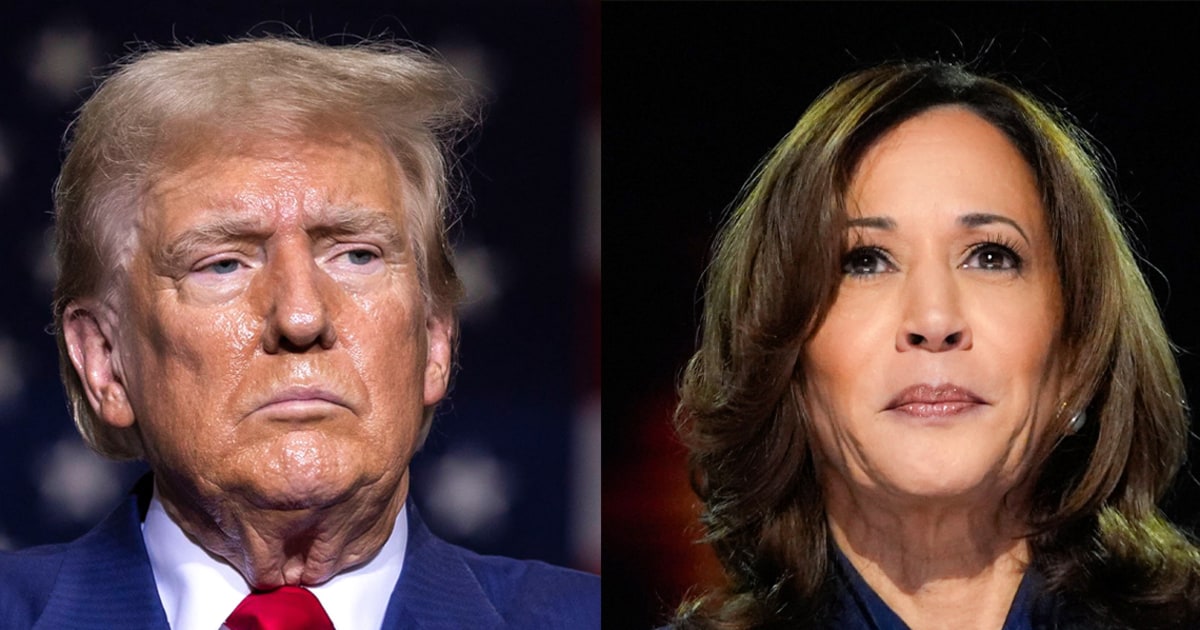Two words sum up the national and battleground state polls released ahead of Labor Day weekend, with fewer than 10 weeks to go until Election Day: changed and close.
Changed, because most of the surveys — conducted after President Joe Biden’s exit from the 2024 race, after the Democratic convention, and after independent Robert F. Kennedy Jr. endorsed former President Donald Trump — show Vice President Kamala Harris with narrow leads nationally and in key battlegrounds.
That’s compared with polling that mostly showed Trump with a narrow edge before Biden’s departure.
And close, because almost all of Harris’ leads are within the polls’ margins of error. And given the polling errors of 2016 and especially 2020, a candidate holding a 1-, 2-, or 3-point advantage in surveys doesn’t guarantee victory — far from it.
Nationally, almost every recent survey shows Harris doing better than Trump by a handful of points. The latest Wall Street Journal poll finds Harris getting support from 48% of registered voters, while Trump gets 47%, well within the poll’s margin of error. The previous Wall Street Journal poll, conducted immediately after Biden’s exit, had Trump ahead by 2 points, 49% to 47% — again within the margin of error.
In addition, a national Quinnipiac University poll shows Harris ahead by 1 point among likely voters, 49% to 48%. It’s Quinnipiac’s first poll measuring likely voters, so there isn’t a past apples-to-apples comparison. But prior Quinnipiac polls of registered voters found Trump narrowly ahead of Biden in June and 2 points ahead of Harris in July.
And a USA Today/Suffolk poll looking at a multicandidate field has Harris ahead of Trump by 5 points among likely voters — again within the margin of error.
In the battleground states, meanwhile, a set of Bloomberg News/Morning Consult polls have Harris and Trump tied in Arizona and North Carolina; Harris ahead within the margin of error in Georgia, Michigan, Nevada and Pennsylvania; and Harris ahead outside the margin of error in Wisconsin.
But the battleground state polling picture is more varied: An EPIC-MRA poll of Michigan shows Trump with a narrow 1 point over Harris in that battleground, 47% to 46% among likely voters. Still, that’s a change from this poll back in June, when Trump enjoyed a 4-point lead over Biden.
Here are other key takeaways and observations from the recent polling:
The Sun Belt is more than in play for Harris
This might be the most significant polling change since Biden’s exit. When Biden was in the race, the states of Arizona, Georgia, Nevada and North Carolina seemed out of reach for the president.
But they are more than in reach with Harris at the top of the ticket.
Before the June 27 Biden-Trump debate, Biden was trailing Trump by thin margins in the Great Lakes swing states and by wider gaps in the Sun Belt. Not only is Harris doing better everywhere, but the distance between the margins in many of those states appears to have tightened with her leading the ticket.
Is this Harris’ peak?
The timing of these polls also is important. They come nearly six weeks after Biden bowed out of the 2024 contest, after the Democratic convention, and after what’s been a political honeymoon for Harris.
Does that momentum, which has coincided with increased Democratic enthusiasm, last? Or will Harris eventually come back to Earth?
It’s pretty easy to explain why either of those scenarios could be true. The only way to find out for sure is to wait and see.
Trump’s near-constant 47%
Notice a pattern in Trump’s ballot share in these recent polls? He’s at 47% nationally in the Wall Street Journal poll; 47% in that EPIC-MRA Michigan poll; and 47% in Georgia and Michigan, per the Bloomberg/Morning Consult surveys.
As it turns out, 47% was Trump’s popular-vote share in the 2020 election (which he lost), and it was 46% in 2016 (which he won).
The third-party vote shrinks
The major reason why Trump’s 46% was a winning number in 2016 and why 47% wasn’t in 2020 was the size of the third-party vote.
In 2016, the third-party vote share was 6%. But four years later, it was just 2%.
And the most recent polls — with Kennedy out of the contest — show third-party candidates receiving a combined 2% in Quinnipiac’s national poll, and getting a combined 4% in the USA Today/Suffolk poll.
By comparison, when Kennedy was in the race, that third-party share was bigger, even after falling from higher heights in the early summer.

